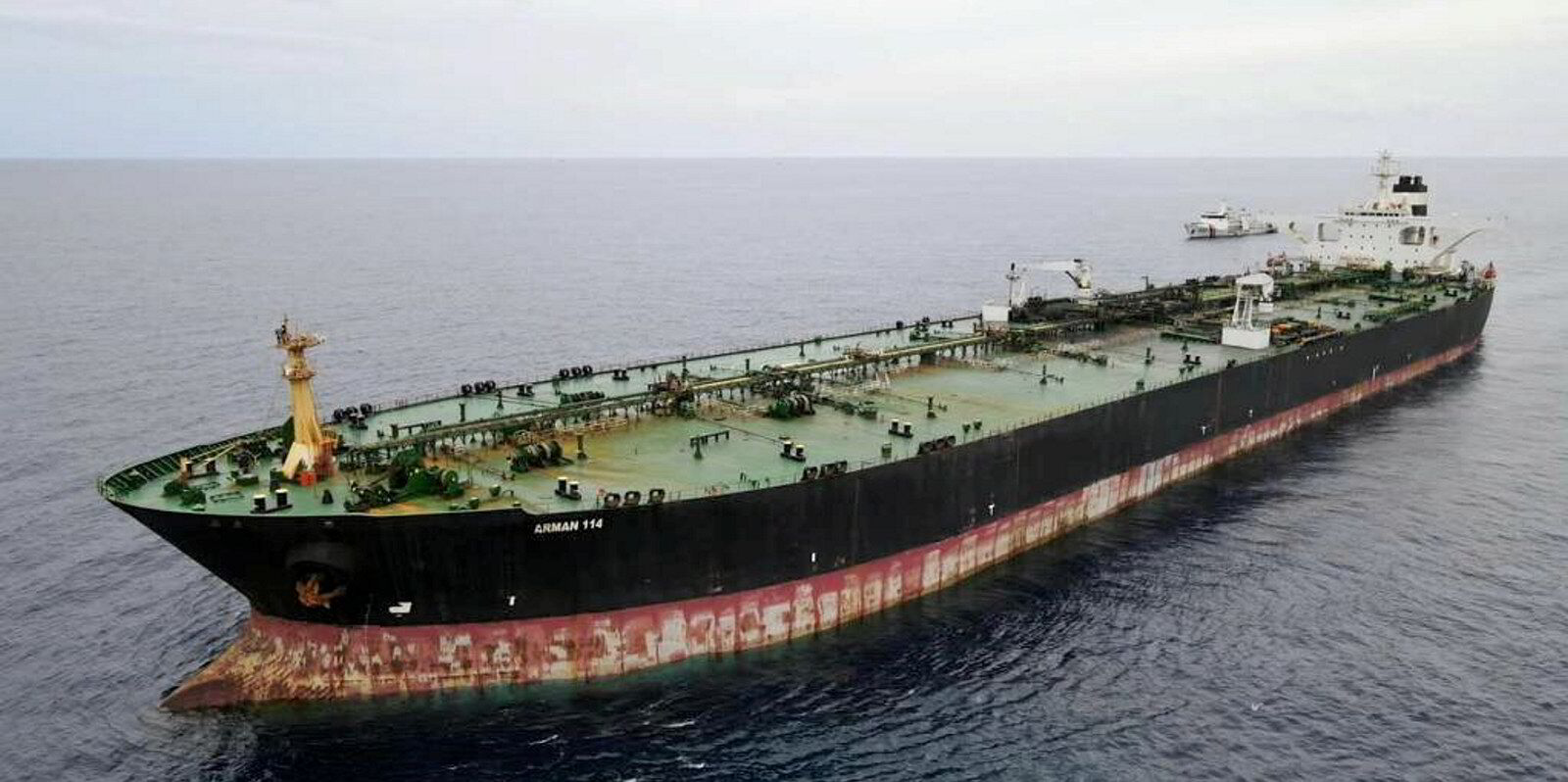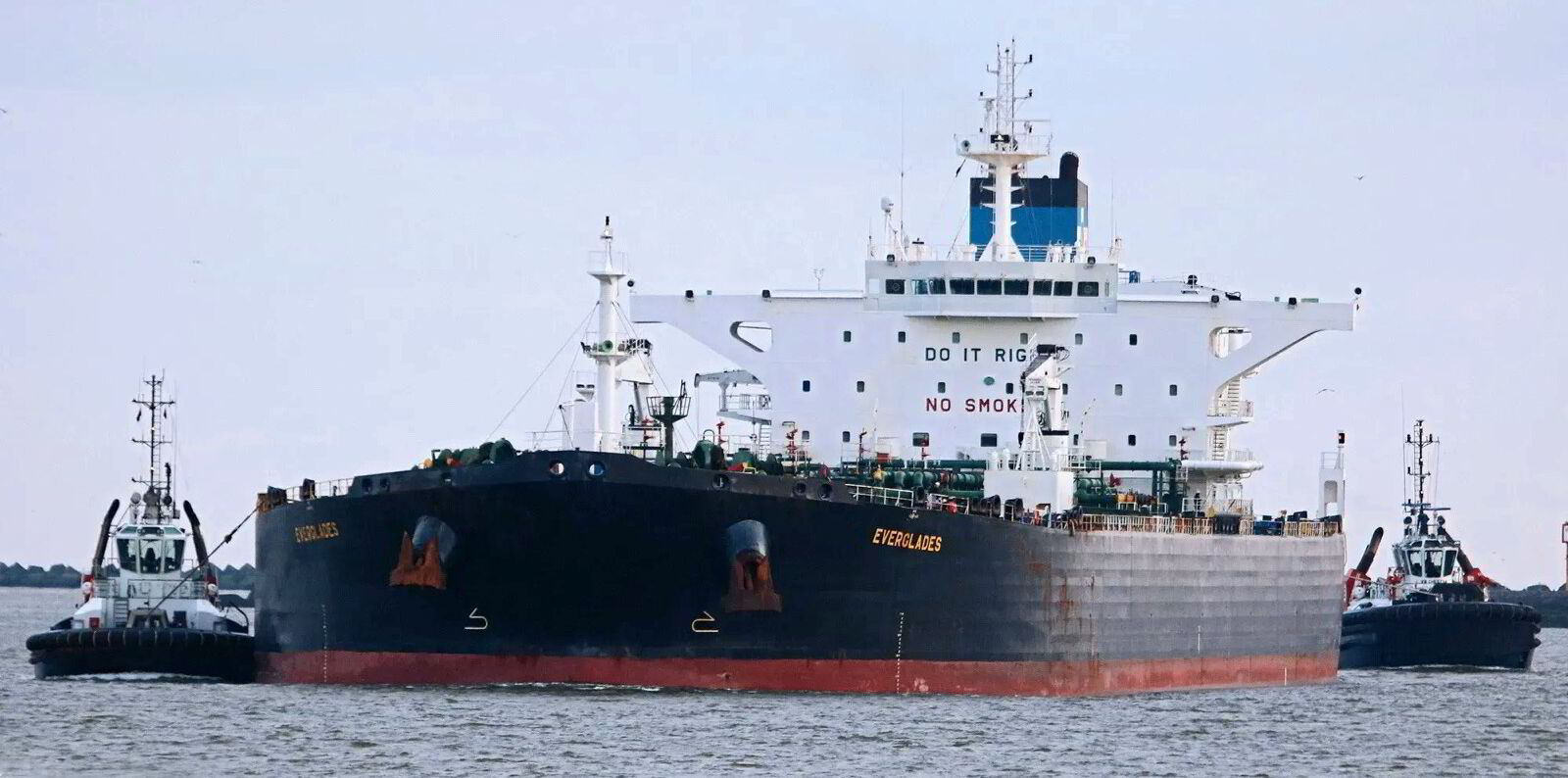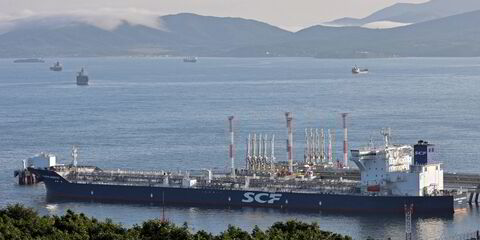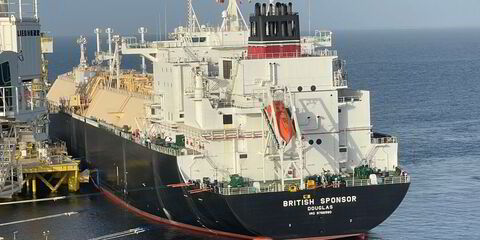The whereabouts of the captain of an Iranian-flagged VLCC are unknown after he failed to turn up to his trial in Indonesia.
Mahmoud Abdelaziz Mohamed Hatiba, 43, from Egypt, was thought to have been in Batam City since his 300,600-dwt Arman 114 (built 1997) was seized following an alleged ship-to-ship (STS) transfer of 2m barrels of crude without permission in July 2023.
Batam Today reported that he was not present at Batam District Court on Thursday, however.
Rumours circulated that Hatiba had left town, but there has been no confirmation of his whereabouts.
Ownership of the vessel is also not clear and Iran has denied owning the cargo.
Outside the trial, a number of people claimed without foundation to own the tanker and the oil.
The public prosecutor read a letter of indictment that stated no witnesses possessed that information either.
“There were several parties who claimed to be legal representatives of the shipowner, but when they were presented at trial the panel of judges rejected them, because the blank documents were not … true,” prosecutor Karya So Immanuel Grot said.
The master’s absence forced an adjournment at least until 4 July.
The judges asked the prosecutor to present the captain at the next hearing.
Detention request
The prosecutor in turn asked for Hatiba to be detained. He will be tried in absentia if he cannot be brought before the court.
The tanker was boarded by armed Indonesian officials, while Malaysian marines descended onto its deck by rope from a helicopter. The captain and 28 Syrian crew members were detained.
Indonesian authorities said the Arman 114 and the second ship, identified by tanker trackers as the 306,100-dwt Lilu (built 2000), had tried to escape with transfer equipment still attached. The vessels did not respond to communications.
The registered owner and manager of the Arman 114, listed as Panama-based Ocean Mark Shipping, could not be contacted for comment.
Under the International Convention for the Prevention of Pollution from Ships (Marpol), tanker operators should inform a state at least 48 hours before a planned STS in its territorial waters or exclusive economic zone, which stretches 200 nautical miles (370 km) from the coast.





